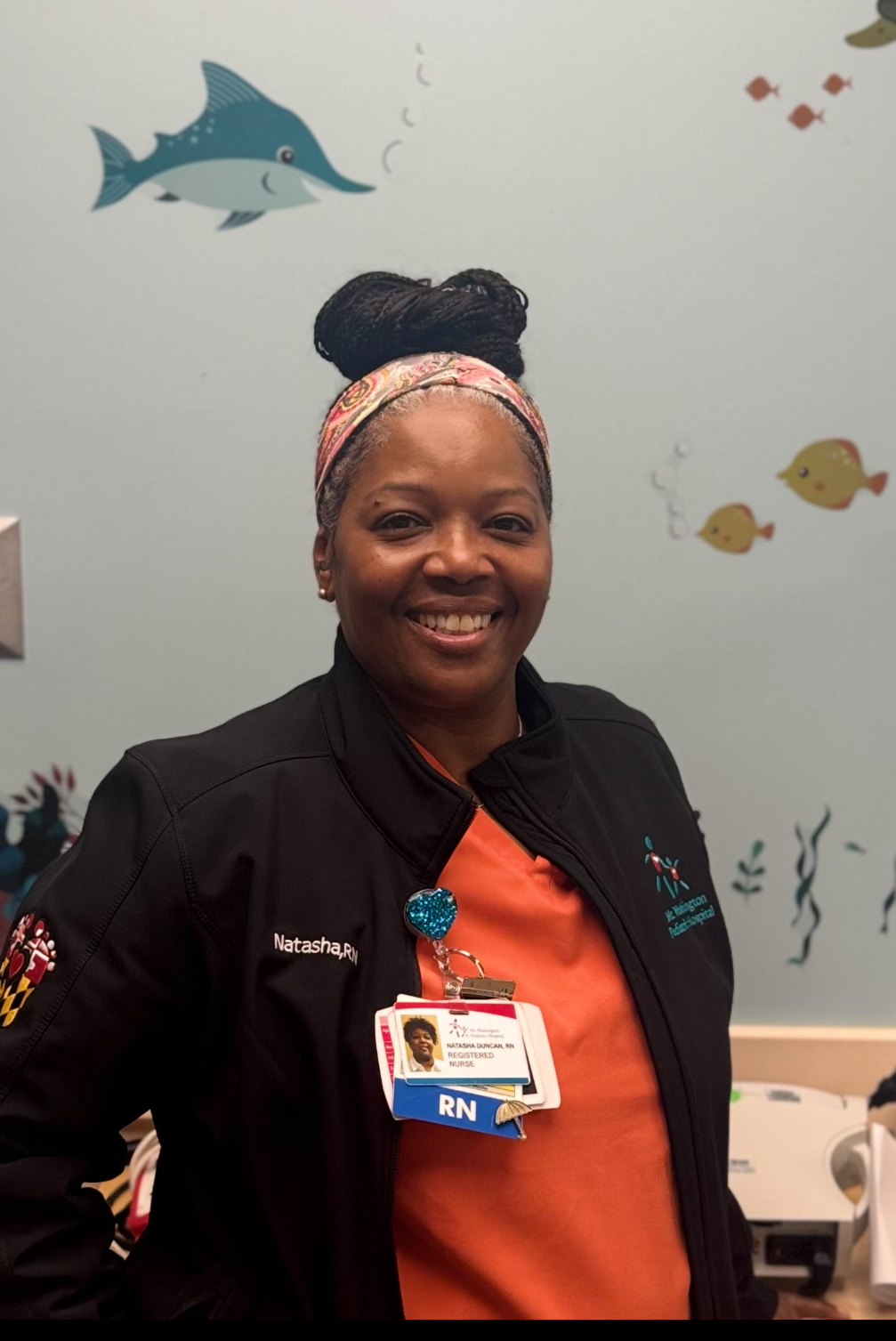News
Feature Stories

'Night is my thing'
When the Sun Goes Down, MWPH Nursing Supervisor, Natasha Duncan, Makes Running the Show Look Effortless
Leading night shift at Mt. Washington Pediatric Hospital calls for empathy, resourcefulness, and steely composure. Colleagues say there is no one they’d rather have in charge after hours than Natasha Duncan.
“She does it all with poise and professionalism. She stays calm even when things get a little hectic,” said Nurse Team Leader Carrie Smith (RN, BSN, CPN), who watched Duncan progress from a floor nurse to charge nurse to nursing supervisor.
Duncan, a registered nurse, gravitated toward the night shift because nurses can provide so much one-on-one care for patients away from the hustle and bustle of the day shift.
“When I started working at Mt. Washington, I was back and forth between day and night. And then after a while, I just said, ‘Night is my thing,'” she said. “The atmosphere overall at night is pretty cool. We work together really well as a team.”
But she knows that the quiet and serene atmosphere of the night shift can change at any moment.
“At night, the decisions are on me. I’m the go-to in the building, but I love it,” Duncan said. “When situations arise, I have to make the best judgment. But the leadership team that works during the day is also very available to me. I can get someone on the phone or by TigerConnect if I need a second opinion.”
Nurse Manager Jessica Decker (RN, BSN, CPN) knows that the Pakula Unit is in good hands when she leaves Duncan in charge at the end of the day.
“If you ask something of Natasha, there’s no doubt she’ll deliver,” Decker said. “The hospital is so lucky to have her on our nursing leadership team.”
Nurse Team Leader Heather Lawless said Duncan exudes a quiet confidence that quickly earns her the respect of her team and patient parents.
“She is very fair. She can put herself in other people’s shoes and meet them where they’re at,” said Lawless, a registered nurse.
Duncan’s steady hand on the night shift could make one think she’s always been a nurse. But nursing is actually her second career.
She worked for the Maryland Transit Administration for 21 years, first in the Police Department and later as a supervisor for the Mobility Department.
After her time at the MTA, she was helping a cousin through a difficult time in her life. Duncan suggested she take some classes at Baltimore Community College. To encourage her cousin even more, she enrolled, too.
While her cousin didn’t take to college life, Duncan did. Encouraged by teachers and classmates, she started studying nursing.
“School was a little intimidating with all the younger people, but my mindset as an older student was a little different than theirs. I was more focused and determined, and I got it done.”
Duncan became a nurse nine years ago and joined MWPH two years after that.
Her coworkers often joke that she can seem like she still works for the police department. They laugh about it, but Duncan doesn’t disagree with them.
“I like to plan things out and keep things in order. I make sure it gets done,” Duncan said. She said she likes to have fun, but after everything is set up for the night.
Duncan lives in Towson and is the mother of two adult children. She is also a proud grandmother to four little ones. During the day, she takes full advantage of the less crowded gym, and she said she loves to travel.
Her friends said her sense of style is unmatched. She makes scrubs look good, Lawless said. Unprompted, Unit Secretary Nia McKnight said: “Her hair is on point!”
Duncan said she wouldn’t be where she is today without help. She said she is thankful for all the strong mentors she had during her time at MWPH, including Decker, Smith and Employee Health Nurse Beth Hewes (RN CPN).
Lawless said Duncan has become a mentor herself.
“The way she leads is inspiring,” Lawless said. “She brings people up. They want to match her energy. She is a role model.”
♥
